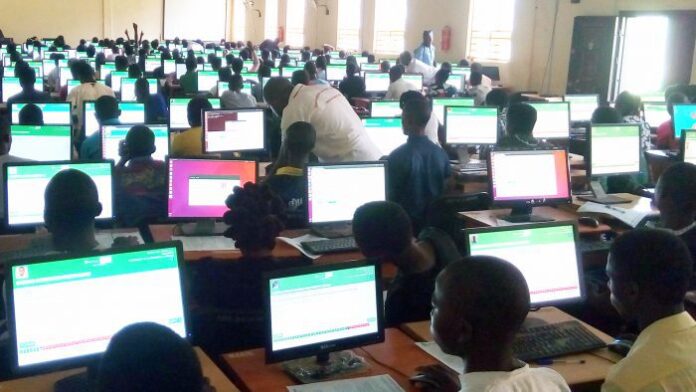LAGOS: Some accredited Computer-Based Test (CBT) centres of the Joint Admissions and Matriculation Board (JAMB) have been implicated in large-scale malpractices during the 2025 Unified Tertiary Matriculation Examination (UTME).
Investigations revealed that certain operators supplied critical technical details to hackers, who then infiltrated servers and manipulated the conduct of the exam.
In May, JAMB encountered widespread technical glitches that marred the UTME, leading to mass failures as about 1.5 million of the 1.9 million candidates scored below 200 out of 400.
The development sparked nationwide outrage, with the JAMB Registrar, Prof. Is-haq Oloyede, admitting that technical errors had affected many candidates.
No fewer than 20 suspects were later arrested by security agencies in Abuja for hacking some CBT centres. By June, JAMB raised fresh concerns over candidates deploying Artificial Intelligence to impersonate others and even using false albinism claims as a means to cheat.
At its July policy meeting, data showed that 19 centres across the country were caught engaging in malpractices, with Imo and Anambra states topping the list.
In August, the board announced that 6,458 admission seekers were under investigation for technology-enabled exam malpractice. A 23-member Special Committee on Examination Infraction was set up to probe the cases.
A self-identified hacker, Ahmed, who claimed to have been involved in the practice for over a decade, explained how breaches were executed.
According to him, some CBT centre operators deliberately release their servers’ Internet Protocol (IP) addresses, giving hackers remote access to candidates’ portals.
There are centres that make their IPs available to us. With that, we gain access to exam questions and candidate login details.
While candidates sit physically inside the hall, mercenaries outside remotely take the exams for them,” Ahmed said.
He added that candidates were sometimes deliberately logged out during exams, allowing hired writers to answer questions remotely. Once completed, the candidates would be logged back in, simply click ‘Submit,’ and their results would reflect the work already done.
Education consultants and CBT insiders confirmed that such malpractice would not be possible without insiders. They revealed that desperate parents often paid large sums of money to secure their children’s success.
A Lagos-based CBT operator admitted that many centre owners knowingly allowed their servers to be compromised because they profited from the fraud. Some even maintained contacts within JAMB to shield them from sanctions.
JAMB’s spokesperson, Fabian Benjamin, dismissed claims that the board’s central system was vulnerable to hacking. He clarified that while some local CBT servers may have been compromised, JAMB’s technology remained secure.
“Our systems are not internet-enabled. We transmit exam questions like text messages directly to centres. What hackers claim to breach are local servers, often in collusion with centre owners,” he explained.
The President of the CBT Centre Proprietors Association of Nigeria, Austin Ohaekelem, acknowledged that although malpractices existed, not all centres were complicit. He stressed that genuine technical glitches sometimes occurred and were wrongly perceived as fraudulent activity.
Other education stakeholders urged JAMB to upgrade its technology, conduct internal reviews, and block loopholes that encourage malpractice.
According to tutorial centre operators, while completely eliminating examination malpractice may be difficult, improved monitoring and stronger safeguards could significantly reduce infractions.
“Miracle centres thrive on systemic loopholes,” said one operator. “Unless these gaps are closed, the problem will persist.”



